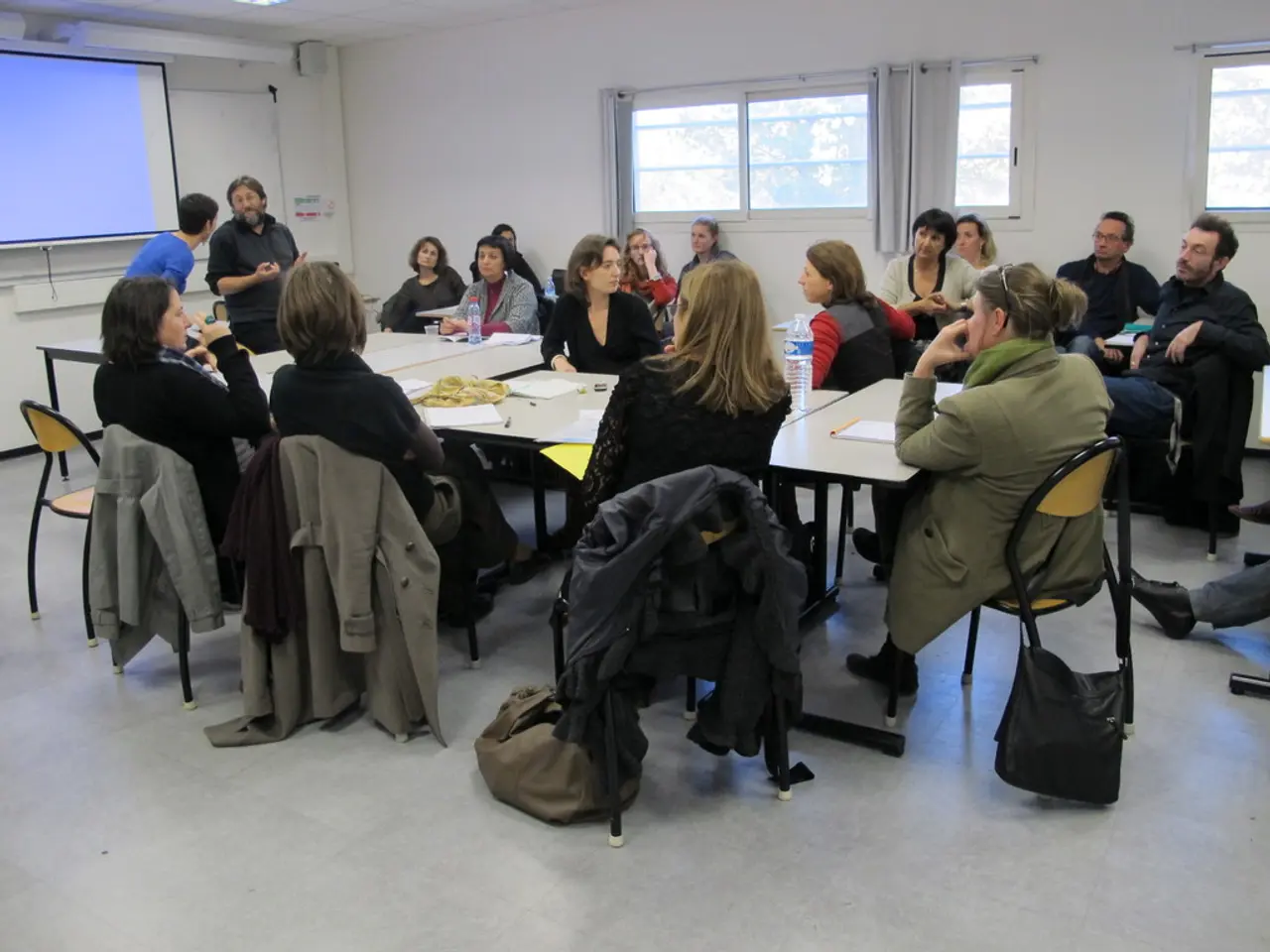Grassroots Initiative Gains Momentum Through Local Support and Unique Insights
In a bid to help cancer survivors within Rochester's Black community, Dr. Karen Mustian, a research leader at the Wilmot Cancer Institute, is spearheading a pilot study. The study, which is set to be conducted in the basement of Helping Hand Missionary, aims to explore the potential of yoga as a means to alleviate pain among Black cancer patients.
Dr. Mustian's standard yoga program is undergoing a cultural transformation and will be known as "SOUL Yoga." The acronym stands for "Strengthening," "Openness," "Uplifting," and "Letting Go," reflecting the program's core objectives.
Dr. Mustian's long-standing interest in the effectiveness of yoga for cancer patients has been bolstered by her collaboration with Reverend Patrina Freeman, a member of Wilmot's Cancer Community Action Council (CCAC). Together, they are working diligently to design and execute this groundbreaking study.
Reverend Freeman's input has been invaluable, sparking a new passion in Dr. Mustian and opening up new possibilities. One of the key areas of discussion has been the cultural considerations for implementing yoga as a method to reduce pain among Black cancer patients.
Recognising the historical and cultural contexts that have shaped the experiences of Black communities is crucial, according to Reverend Freeman. Acknowledging the trauma and systemic inequalities that have influenced health interventions' reception is an essential first step.
Culturally relevant messaging is another vital aspect. Both Dr. Mustian and Reverend Freeman stress the importance of tailoring communication about yoga to resonate with Black patients’ cultural experiences and values, rather than presenting yoga as a generic or predominantly white practice.
Building trust and community connections is also essential. Utilising trusted community figures such as church leaders or local Black health advocates can help bridge gaps, making patients feel more comfortable and supported in trying yoga.
Addressing access and inclusivity is another consideration. Ensuring that yoga programs are accessible in terms of location, cost, and class style—offering forms of yoga that accommodate different physical abilities and preferences common in the community—is crucial.
Incorporating spiritual and holistic elements is also crucial. Reverend Freeman points out that integrating elements of spirituality, which may align with patients’ religious beliefs or cultural practices, can enhance acceptance and engagement with yoga.
Representation is another key factor. Having Black instructors or facilitators in yoga programs can foster a sense of representation and belonging, encouraging more participation by Black cancer patients.
Overall, the discussion underscores that culturally sensitive adaptation of yoga practices—respecting and reflecting the lived experiences, values, and needs of Black cancer patients—is crucial for effective pain reduction through yoga.
Community engagement can have a major impact on cancer care and scientific advances, as evidenced by the collaboration between Dr. Mustian and Reverend Freeman. The pilot study will provide critical data for an NCI grant, and if successful, it could pave the way for wider implementation of culturally sensitive yoga programs for cancer survivors.
- Dr. Mustian's SOUL Yoga program, designed for alleviating pain among Black cancer patients, seeks to prioritize 'patient care' and 'workplace-wellness' over generic fitness and exercise.
- Collaborating with Reverend Freeman, Dr. Mustian focuses on 'cultural considerations' and 'culturally relevant messaging' to make yoga accessible and engaging for the targeted demographic.
- To accommodate the unique 'medical-conditions' of the community, various 'fitness-and-exercise' styles will be offered, ensuring inclusivity in the 'health-and-wellness' program.
- Recognizing historical and cultural contexts, the study aims to 'address access and inclusivity' that have been overlooked in previous health interventions related to 'cancer' and 'womens-health'.
- To increase participation, locally trusted figures and instructors from the 'Black community' will be involved, promoting 'community connections' that can support 'mental-health' and contribute to 'mens-health'.
- To foster deeper engagement, the study integrates 'spiritual' and 'holistic' elements reflecting the 'religious beliefs' and cultural practices of the 'Black community'.
- The study aims to provide 'therapies-and-treatments' beyond traditional medicine, exploring the benefits of yoga for 'sexual-health' and overall 'health-and-wellness'.
- Utilizing 'CBD' and other natural healing methods could be an interesting avenue for further exploration in combination with 'yoga' and 'parenting' resources for continued well-being post-cancer recovery.




